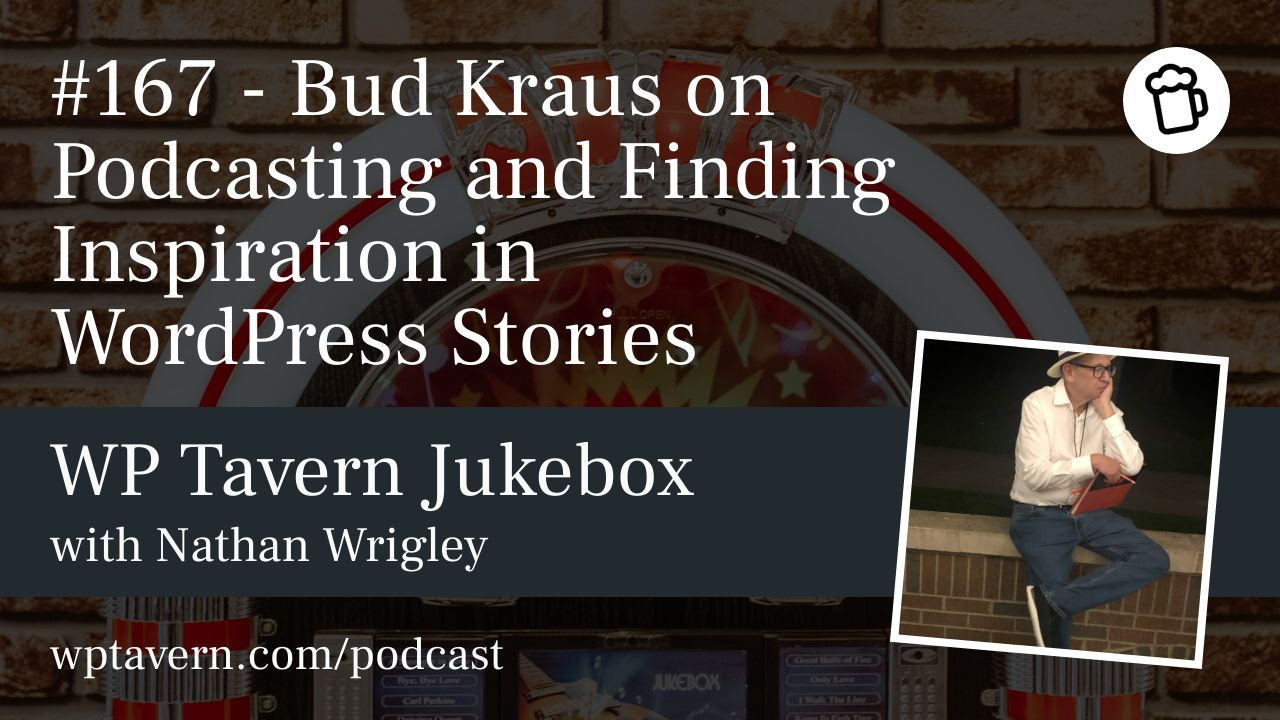Bud Kraus is a WordPress content creator, teacher, and host of the Seriously, BUD? podcast. His WordPress journey began in 2009 after a client urged him to learn the platform. He quickly became fascinated—especially after discovering child themes—and moved into teaching WordPress at FIT and elsewhere. Over time he shifted from building client sites to producing content: articles, videos, and podcasts for WordPress businesses. He now calls himself a “WordPress content creative,” writing regularly for outlets such as Hostinger and Kinsta and running his own sites joyofwp.com and seriouslybud.com.
Why content instead of client work
Bud drifted toward content rather than planning the move. Invitations to create a security video for InstaWP and write for GoDaddy helped him realize he could be paid for WordPress writing. He enjoys being his own client and prefers creating on his own terms rather than doing client-driven site builds, though he still maintains a couple of sites for people he likes.
The origin of Seriously, BUD?
The podcast idea struck Bud after WordCamp US 2023. He wanted deeper, unscripted conversations with people in the WordPress community—talks that explore lives, quirks and stories rather than just plugins and code. The show, initially born as “In Conversation With,” became Seriously, BUD? Bud’s intention was simple: scratch an itch, make conversations for himself, and offer guests a platform to tell personal stories. The first episode, recorded a few months later with Marcus Burnette, launched a weekly schedule: new episodes every Friday at 8:00 a.m. ET.
Format and interviewing approach
Seriously, BUD? favors unscripted, conversational interviews rather than linear, Q&A backstories. Guests fill out a detailed form beforehand, which Bud reviews to find hooks—quirky or revealing details he can use to start a conversation. He does minimal rigid prep; instead he listens closely and follows the natural flow, treating interviews like relaxed conversations rather than structured interrogations.
Bud emphasizes listening as the core interviewing skill. Good interviews, he says, are less about the prepared question and more about hearing the guest’s answer and following it with curiosity-driven follow-ups. He aims for “unexpected conversations” that reveal personality and biography more than technical accomplishments. He also prefers older guests for the depth their lived experience brings, though he enjoys interviewing less-known people because the curiosity of listeners can produce surprising engagement.
Editing and production philosophy
Bud views editing as where the show really comes alive. He records via SquadCast (remote recording) and edits in Descript, valuing both timeline and text-based editing workflows. He is particular about editing: cleaning filler words, tightening pauses, and removing tangents that don’t serve listeners. While some podcasters favor minimal editing, Bud favors purposeful edits to improve flow and listening experience—particularly trimming his own rambling or irrelevant local sports talk.
For hosting and distribution he uses Buzzsprout, and he runs recordings through audio cleanup tools before publishing. He notes the editing phase is when he truly hears the show and makes creative choices: shorten gaps, remove repetitive “warmup” words (especially common when English isn’t a guest’s first language), and shape a coherent episode.
Tech stack and accessibility
Bud’s basic stack:
– Recording: SquadCast
– Editing: Descript
– Hosting/distribution: Buzzsprout
– Microphone: Shure MV7 (sponsored by Omnisend in his case)
He stresses the low barrier to entry for podcasting—phones and basic mics are often enough—and finds WordPress a helpful platform for a podcast website, though he launched his show using recording tools before building a site. Podcasting’s portability and mobile nature make it a powerful medium: listeners can multitask, and the format remains valuable for talk-style content.
Guests, language and reach
Bud has hosted a wide range of people from the WordPress community. He often gets better results with guests he doesn’t already know because curiosity fuels the conversation. He’s sensitive to language differences—allowing space for non-native-English speakers and using editing to polish the final audio. Contrary to expectations, episodes with the most-famous guests don’t always get the most plays; sometimes lesser-known guests or episodes shared with a guest’s local network perform surprisingly well.
Monetization and longevity
Bud initially didn’t care about sponsors or listeners; that changed as the show grew. He’s realistic about growth and content longevity: podcasting has become central to his work and identity, and he plans to continue while it remains enjoyable and sustainable. He also sees potential for related products—Bud mentioned an ebook in progress, Questions I Wish I Had Asked, and plans for a blog tying into the show’s stories.
Practical advice for prospective podcasters
– Focus on listening more than strict scripts; follow curiosity.
– Use accessible tools—remote recorders and editors make the process easy.
– Don’t fear editing: it’s where the show’s personality is refined.
– A simple website and distribution service (e.g., Buzzsprout) are all you need to reach listeners.
– Start small, keep a regular publishing cadence, and let the format evolve.
Where to find Bud and the show
– Podcast and episodes: seriouslybud.com
– Show notes and links from this interview: wptavern.com/podcast
– Bud’s other site: joyofwp.com
Serious, BUD? is positioned as a platform to reveal the human stories behind WordPress contributors—unscripted, edited, and driven by curiosity. Bud’s blend of conversational interviewing and careful post-production shows how a modest tech stack and a clear creative intent can produce compelling, human-focused audio.
